- Home
- Gore Vidal
The Selected Essays of Gore Vidal Page 13
The Selected Essays of Gore Vidal Read online
Page 13
A shift from Profane to “Young Stencil, the world adventurer” and the mystery woman V. Elliptical conversation (1946) between a margravine and Stencil (whose father Sidney was in the British foreign office; he died in Malta “while investigating the June Disturbances”). They sit on a terrace overlooking the Mediterranean. “Perhaps they may have felt like the last two gods.” Reference to an entry in father’s journal, “‘There is more behind and inside V. than any of us had suspected. Not who, but what: what is she.’” Stencil pursues the idea of V. A quest: “in the tradition of The Golden Bough or The White Goddess.”
From various references to Henry Adams and to physics in Pynchon’s work, I take it that he has been influenced by Henry Adams’s theory of history as set forth in The Education of Henry Adams and in the posthumously published “The Rule of Phase Applied to History.” For Adams, a given human society in time was an organism like any other in the universe and he favored Clausius’s speculation that “the entropy of the universe tends to a maximum” (an early Pynchon short story is called “Entropy”).
Maximum entropy is that state at which no heat/energy enters or leaves a given system. But nothing known is constant. The Second Law of Thermodynamics appears to be absolute: everything in time loses energy to something else and, finally, drops to zero (centigrade) and dies or, perhaps, ceases to be matter as it was and becomes anti-matter. Question: to anti-matter are we anti-anti-matter or no matter at all?
I have little competence in the other of Lord Snow’s celebrated two cultures. Like so many other writers I flunked physics. But I know my Adams and I can grasp general principles (without understanding how they have been arrived at); in any case, to make literature, a small amount of theory is enough to provide commanding metaphors. Pynchon’s use of physics is exhilarating and as an artist he appears to be gaining more energy than he is losing. Unlike the zero writers, he is usually at the boil. From Adams he has not only appropriated the image of history as Dynamo but the attractive image of the Virgin. Now armed with these concepts he embarks in V. on a quest, a classic form of narrative, and the result is mixed, to say the least.
To my ear, the prose is pretty bad, full of all the rattle and buzz that were in the air when the author was growing up, an era in which only the television commercial was demonically acquiring energy, leaked to it by a declining Western civilization. Happily, Pynchon is unaffected by the French disease, except for one passage: “Let me describe the room. The room measures 17 by 111/2 feet by 7 feet. The walls are lathe and plaster…. The room is oriented so that its diagonals fall NNE/SSW, and NW/SE.” As another ex-seaman, I appreciate Pynchon’s ability to box the compass, something no French ice-cream vendor could ever do. With this satisfying send-up, Pynchon abandons the New Novel for his own worlds and anti-worlds.
The quest for V. (the Virgin? or nothing much?) takes Stencil to Valletta, capital of Malta, a matriarchal island, we are told, where manhood must identify itself with the massive rock. There are clues. False scents. Faust is on the scene. And Profane is also in Malta. The prose is very close to that of the comic books of the Fifties:
“Thirteen of us rule the world in secret.”
“Yes, yes. Stencil went out of his way to bring Profane here. He should have been more careful; he wasn’t. Is it really his own extermination he’s after?”
Maijstral turned smiling to him. Gestured behind his back at the ramparts of Valletta. “Ask her,” he whispered. “Ask the rock.”
Energy nicely maintained; controlling intelligence uneven.
With The Crying of Lot 49 (1966) Pynchon returns to the quest, to conspiracy. Cute names like Genghis Cohen, an ancient Hollywood joke. Bad grammar: “San Narcisco lay further south,” “some whirlwind rotating too slow for her heated skin.” A lot of booze. Homophobia. Mysteries. It would appear that most of the courses Pynchon took at Cornell are being used: first-year physics, psychology, Jacobean tragedy—but then his art is no doubt derived “from experience and not much of that.”
This time the grail is an alternative postal service. Haunting the narrative is the noble house of Thurn and Taxis (the wife of a descendant was a literary agent in the United States: known to Pynchon? Also, Rilke’s patroness was a princess of that house). Jokes: “‘I was in the little boys’ room,’ he said. ‘The men’s room was full.’” There are numerous images of paranoia, the lurking “they” who dominate the phantom postal service of the Tristero (sometimes spelled Trystero), a mirror-alternative in earlier times to the Thurn and Taxis postal monopoly. “While the Pony Express is defying deserts, savages and sidewinders, Tristero’s giving its employees crash courses in Siouan and Athapascan dialects. Disguised as Indians their messengers mosey westward. Reach the coast every time, zero attrition rate, not a scratch on them. The entire emphasis now toward silence, impersonation, opposition masquerading as allegiance.’” Well, Joyce also chose exile, cunning, silence, but eschewed allegiance’s mask. Lot 49 has been cried. Who will bid?
Gravity’s Rainbow (1973) contains close to 900 densely printed pages. For a year I have been reading in and at the text. Naturally, I am impressed that a clear-cut majority of the departments of English throughout North America believe this to be the perfect teachers’ novel. I am sure that they are right. Certainly no young writer’s book has been so praised since Colin Wilson’s The Outsider.
The first section of Gravity’s Rainbow is called “Beyond the Zero.” Plainly a challenge not only to l’écriture blanche but to proud entropy itself. Pynchon has now aimed himself at anti-matter, at what takes place beyond, beneath the zero of freezing, and death. This is superbly ambitious and throughout the text energy hums like a…well, dynamo.
The narrative begins during the Second War, in London. Although Pynchon works hard for verisimilitude and fills his pages with period jabber, anachronisms occasionally jar (there were no “Skinnerites” in that happy time of mass death). The controlling image is that of the V-2, a guided missile developed by the Germans and used toward the end of the war (has Pynchon finally found V.? and is she a bomb?). There is an interesting epigraph from Werner von Braun: “Nature does not know extinction; all it knows is transformation.” Braun believes “in the continuity of our spiritual existence after death.” So much then for zero degree. This quasi-Hindu sentiment is beguiling and comforting and, no doubt, as concerns matter, true: in time or phases, energy is always lost but matter continues in new arrangements. Personally, I find it somber indeed to think that individual personality goes on and on beyond zero, time. But I am in a minority: this generation of Americans is god-hungry and craves reassurance of personal immortality. If Pynchon can provide it, he will be as a god—rather his intention, I would guess.
It is curious to read a work that excites the imagination but disturbs the aesthetic sense. A British critic no longer in fashion recently made the entirely unfashionable observation that prose has everywhere declined in quality as a result of mass education. To compare Pynchon with Joyce, say, is to compare a kindergartener to a graduate student (the permanent majority of the culturally inadequate will promptly respond that the kindergartener sees more clearly than the graduate student and that his incompetence with language is a sign of innocence not ignorance and hence grace). Pynchon’s prose rattles on and on, broken by occasional lengthy songs every bit as bad, lyrically, as those of Bob Dylan.
Light-up, and-shine, you—in-candescent Bulb Ba-bies!
Looks-like ya got ra-bies
Just lay there foamin’ and a-screamin’ like a buncha little demons,
I’m deliv’rin’ unto you a king-dom of roa-ches….
England. Germany. Past. Present. War. Science. Telltale images of approaching…deity? Two characters with hangovers “are wasted gods urging on a tardy glacier.” Of sandbags at a door, “provisional pyramids erected to gratify curious gods’ offspring.” And “slicks of nighttime vomit, pale yellow, clear as the fluids of gods.” Under deity, sex is central to this work of transformation. A cha
racter’s erections achieve a mysterious symbiosis with the V-2S. A sadist abuses a young man and woman. “Every true god must be both organizer and destroyer.” A character declaims: “‘If only S and M could be established universally, at the family level, the state would wither away.’” This is a nice joke (although I thought S and M was already universal at the family level). “‘Submit, Gottfried. Give it all up. See where she takes you. Think of the first time I fucked you…. Your little rosebud bloomed.’” Hard to believe that it is close to a decade since that pretty moss tea-rose was first forced, as it were, in my greenhouse.
Eventually, the text exhausts patience and energy. In fact, I suspect that the energy expended in reading Gravity’s Rainbow is, for anyone, rather greater than that expended by Pynchon in the actual writing. This is entropy with a vengeance. The writer’s text is ablaze with the heat/ energy that his readers have lost to him. Yet the result of this exchange is neither a readerly nor a writerly text but an uneasy combination of both. Energy and intelligence are not in balance, and the writer fails in his ambition to be a god of creation. Yet his ambition and his failure are very much in the cranky, solipsistic American vein, and though I doubt if anyone will ever want to read all of this book, it will certainly be taught for a very long (delta) time: “approaching zero, eternally approaching, the slices of time growing thinner and thinner, a succession of rooms each with walls more silver, transparent, as the pure light of the zero comes nearer….” Everything is running down. We shall freeze. Then what? A film by Stanley Kubrick?
Richard Poirier is more satisfied than I with Pynchon’s latest work. For one thing, he is awed by the use of science. Approvingly, he quotes Wordsworth’s hope that the poet would one day “be ready to follow the steps of the Man of science, not only in those general indirect effects, but he will be at his side, carrying sensation into the midst of science itself.” Pynchon would appear to fulfill Wordsworth’s reverie. He is as immersed in contemporary physics and cybernetics as Henry Adams was in the scientific theories of his day. But the scientific aspects of Pynchon’s work will eventually become as out-of-date as those of Henry Adams. Science changes: one day we are monists, the next day pluralists. Proofs are always being disproven by other proofs. At the end, there are only words and their arrangement.
Poirier compares Pynchon to the Faulkner of Absalom, Absalom and finds both likeness and a significant difference, for “this genius of our day is shaped by thermodynamics and the media, by Captain Marvel rather than by Colonel Sartoris.” This is no doubt a true description, but is the result as good? or good? What I find to be tedious and random in Pynchon’s list-making, Poirier sees as so many
Dreiserian catalogues of the waste materials of our world that only by remaining resolutely on the periphery, without ever intruding himself into the plotting that emanates from his material, only then can he see what most humanly matters.
“Matter,” a verb. “Matter,” a noun. The matter of fiction has been expanded by Pynchon’s ascent from zero degree (writing as well as centigrade); nevertheless, entropy is sovereign. That which gains energy/heat does so at the expense of that which is losing energy/heat to it. At the end there is only the cold and no sublunary creatures will ever know what songs the quasars sing in their dark pits of anti-matter.
I cannot help but feel a certain depression after reading Mr. Barthelme’s chosen writers. I realize that language changes from generation to generation. But it does not, necessarily, improve. The meager rattling prose of all these writers, excepting Gass, depresses me. Beautiful sentences are not easy to write, despite Mr. Barthelme’s demur. Since beauty is relative only to intention, there are doubtless those who find beauty in the pages of books where I find “a flocculent appearance, something opaque, creamy and curdled, something powerless ever to achieve the triumphant smoothness of Nature. But what best reveals it for what it is is the sound it gives, at once hollow and flat; its noise is its undoing, as are its colors, for it seems capable of retaining only the most chemical-looking ones. Of yellow, red and green, it keeps only the aggressive quality….” What is “it”? The work of the new American formalists? No, “it” is plastic, as described by Barthes in Mythologies.
The division between what I have elsewhere called the Public-novel and the University-novel is now too great to be bridged by any but the occasional writer who is able to appeal, first to one side, then to the other, fulfilling the expectations (more or less) of each. I find it hard to take seriously the novel that is written to be taught, nor can I see how the American university can provide a base for the making of “new” writing when the American university is, at best, culturally and intellectually conservative and, at worst, reactionary.
Academics tell me that I am wrong. They assure me that if it were not for them, the young would never read the Public-novels of even the recent past (Faulkner, Fitzgerald). If this is true, then I would prefer for these works decently to die rather than to become teaching-tools, artifacts stinking of formaldehyde in a classroom (original annotated text with six essays by the author and eight critical articles examining the parameters of the author’s vision). But the academic bureaucracy, unlike the novel, will not wither away, and the future is dark for literature. Certainly the young in general are not going to take up reading when they have such easy alternatives as television, movies, rock. The occasional student who might have an interest in reading will not survive a course in English, unless of course he himself intends to become an academic bureaucrat.
As for Thomas Pynchon, one can applaud his deliberate ascent from Academe into that dangerous rainbow sky in which he will make his parabola and fall as gravity pulls him back to where he started, to Academe, to zero, or to (my first graphic, ever) .
The New York Review of Books
July 15, 1974
CALVINO’S NOVELS
Between the end of the Second World War in 1945 and the beginning of the Korean War in 1950, there was a burst of creative activity throughout the American empire as well as in our client states of Western Europe. From Auden’s Age of Anxiety to Carson McCuller’s Reflections in a Golden Eye to Paul Bowles’s The Sheltering Sky to Tennessee Williams’s A Streetcar Named Desire to Tudor’s ballets and to Bernstein’s enthusiasms, it was an exciting time. The cold war was no more than a nip in the air while the junior senator from Wisconsin was just another genial pol with a drinking problem and an eye for the boys. In that happy time the young American writer was able to reel in triumph through the old cities of Europe—the exchange rate entirely in his favor.
Twenty-six years ago this spring I arrived in Rome. First impressions: Acid-yellow forsythia on the Janiculum. Purple wisteria in the Forum. Chunks of goat on a plate in a trattoria. Samuel Barber at the American Academy, talking Italian accurately. Harold Acton politely deploring our barbarous presence in his Europe. Frederic Prokosch at Doney’s, eating cakes. Streets empty of cars. Had there been traffic of any kind, Tennessee Williams would have been planted long since in the Protestant cemetery, for he drove a jeep although “I am practically blind in one eye,” he would say proudly, going through the occasional red light, treating sidewalk and street as one.
I visited George Santayana in his hospital cell at the Convent of the Blue Nuns. He wore a dressing gown; Lord Byron collar open at the withered neck; faded mauve waistcoat. He was genial; made a virtue of his deafness. “I will talk. You will listen.” A sly smile; black glittering eyes—he looked exactly like my grandmother gone dramatically bald.
“Have you met my young new friend Robert Lowell?” I said no. “He will have a difficult life. To be a Lowell. From Boston. A Catholic convert.” The black eyes shone with a lovely malice. “And a poet, too! Oh, dear. Now tell me who is a Mr. Edmund Wilson? He came to see me. I think that he must be very important. In fact, I believe he said that he was very important. You sent me a book, he said. I said that I had not. He said but you did, and got very angry. I tried to tell him that I do not send books. But later I recal
led that when we were rescued by the American army—and how glad we were to see you!” A fond glance at me (one still wore khakis, frayed army belt). “A major, a very forceful man, came to see me, with a number of my books. He stood over me and made me sign them…for this one, for that one. I was terrified and did as he requested. Perhaps one of those books was for Mr. Wilson.”
The only books in Santayana’s cell were his own—and a set of Toynbee’s recently published history, which he was reading characteristically; that is, he first broke (or foxed) the spine of the book and undid the sections; then, as he finished reading each section, he would throw it in the wastebasket. “Some sort of preacher, I should think,” he said of Toynbee. “But the footnotes are not entirely worthless.”
Santayana signed a copy of The Middle Span for me; he wrote “from” before his name. “I almost never do that,” he said. An appraising look. “You look younger than you are because your head is somewhat small in proportion to your body.” That was in 1948, when the conquering Americans lived in Rome and Paris and strolled streets as yet uncrowded with automobiles or with the billion or so human beings who have since joined us.
In that far-off time, the people one met talked about novels and novelists the way they now talk of movies and directors. Young people today think that I am exaggerating. But novelists mattered then and the Italian novel, in particular, was having a fine flowering. Yet the American writers in Rome and Paris saw little of their counterparts. For one thing, the Italians were just getting around to reading Dos Passos and Steinbeck—the generation that had gone untranslated during the Fascist era. Also, few Italian writers then (or now) spoke or read English with any ease while the American writers then (though not so much now) proudly spoke no language but English.

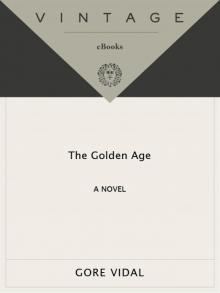 The Golden Age: A Novel
The Golden Age: A Novel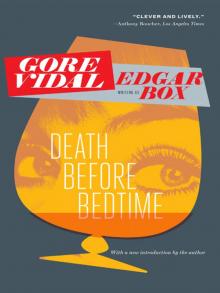 Death Before Bedtime
Death Before Bedtime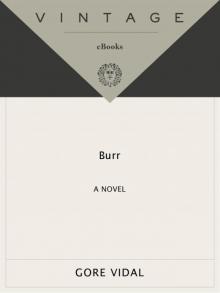 Burr
Burr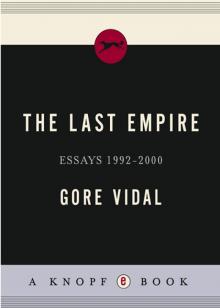 The Last Empire
The Last Empire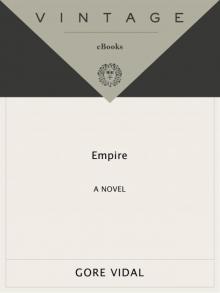 Empire: A Novel
Empire: A Novel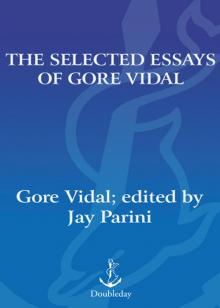 The Selected Essays of Gore Vidal
The Selected Essays of Gore Vidal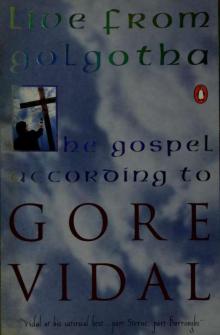 Live From Golgotha
Live From Golgotha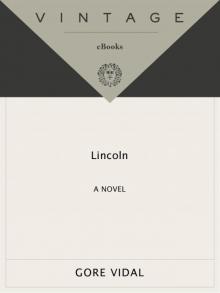 Lincoln
Lincoln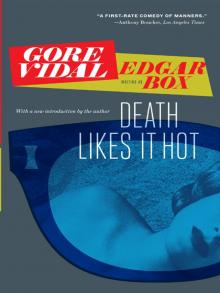 Death Likes It Hot
Death Likes It Hot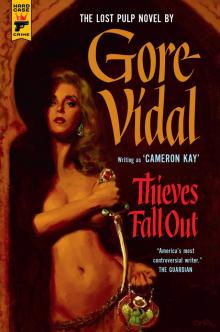 Thieves Fall Out (Hard Case Crime)
Thieves Fall Out (Hard Case Crime)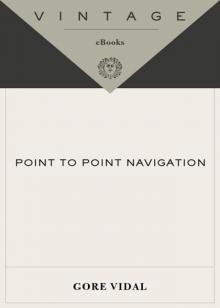 Point to Point Navigation
Point to Point Navigation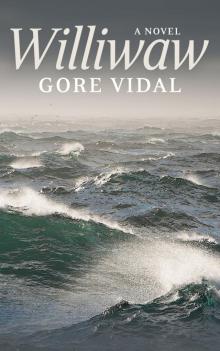 Williwaw
Williwaw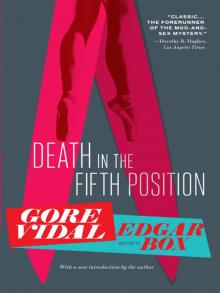 Death in the Fifth Position
Death in the Fifth Position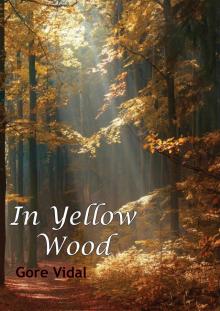 In a Yellow Wood
In a Yellow Wood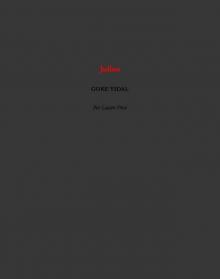 Julian
Julian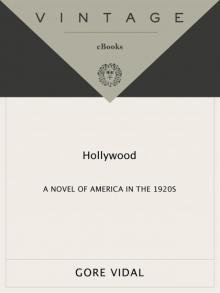 Hollywood
Hollywood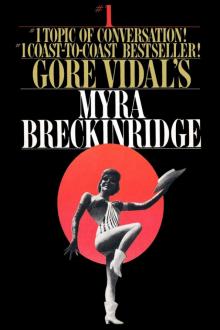 Myra Breckinridge
Myra Breckinridge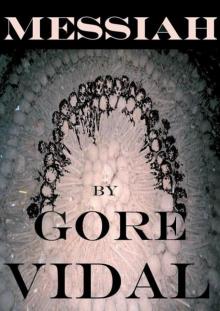 Messiah
Messiah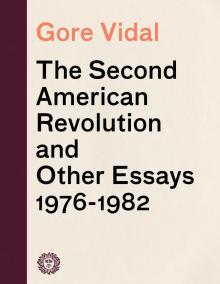 The Second American Revolution and Other Essays 1976--1982
The Second American Revolution and Other Essays 1976--1982 Homage to Daniel Shays
Homage to Daniel Shays Empire
Empire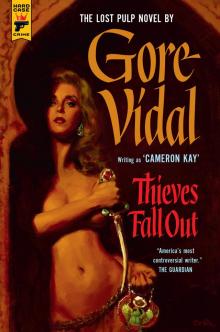 Thieves Fall Out
Thieves Fall Out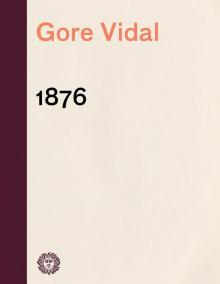 1876
1876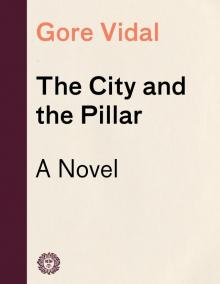 The City and the Pillar
The City and the Pillar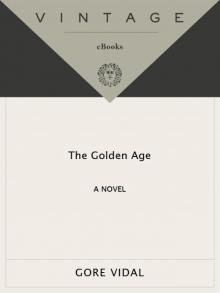 The Golden Age
The Golden Age At Home
At Home